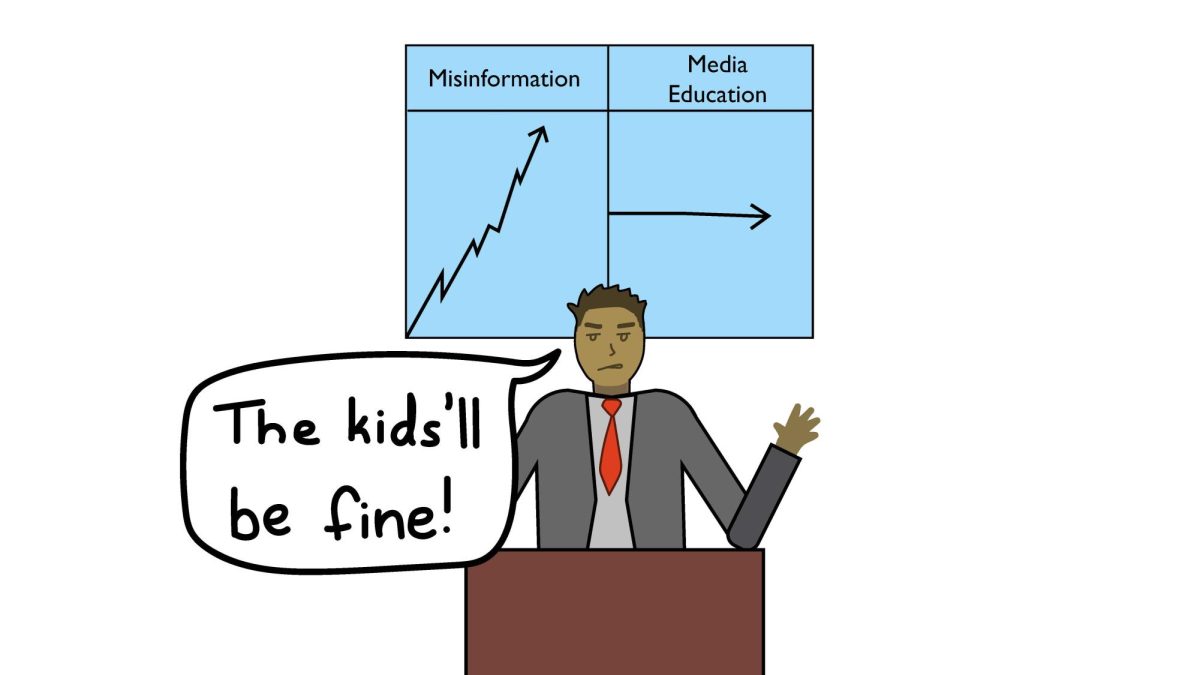Delay. Deny. Depose.
Police found these three words written on bullet casings at the scene of UnitedHealthcare CEO Brian Thompson’s assassination. The fatal shooting took place in New York City on Dec. 4. Police believe the words “delay” and “deny” refer to the alleged tactics health insurance companies use to avoid paying claims. It’s possible that “depose” refers to the deposition of Thompson. The assassination has sparked discussion of predatory health insurance policies and healthcare costs across the country, and changes to these systems are urgently needed. A 2023 survey from health policy organization KFF reported that almost one in five insured adults in the United States experienced a denied claim in the past year. Additionally, the survey found that 27% of insured adults in the U.S. received less payment than they expected from their insurer for a medical bill; of those 27%, 76% got their claims denied. Healthcare costs and the lack of coverage from insurance companies have only gotten more severe, and while violence is not a proper way to draw attention to the problem, American citizens must use their democratic power to demand change.
UnitedHealthcare profits off of denying insurance claims, as the more claims they deny, the more profit they make. Thompson earned $10.2 million in 2023. While the actions of the assassin, who police have identified as a man named Luigi Mangione, are not the right way to address this problem, they clearly came from a place of frustration with Thompson’s management and the system as a whole. UnitedHealthcare has the highest denial rate of any health insurance company in the country, according to a 2023 Medicare report. But while Thompson’s management of UnitedHealthcare is viewed by many as immoral and even corrupt, he is not the primary problem. The issue is far more complex than one CEO — it’s the entire healthcare system and the health insurance industry.
In a country of ever-growing political polarization and strife, criticism of the healthcare system seems to be the one thing that Americans of all political backgrounds agree on. Everyone has dealt with medical bills. Everyone is at risk of unexpectedly ending up with hefty hospital costs. Another 2024 KFF survey reports that 49% of American adults would not be able to pay an unexpected medical bill of $500 without going into debt, and 74% report they are worried about being able to afford unexpected medical bills. These statistics continue to go on; the point is that no one wins in the healthcare system, except for those at the top. Healthcare should be a right, not a privilege. When insurance companies limit cost coverage and deny claims, they are limiting the extent of care a patient receives. Voters can make a change by following up on and preserving existing legislatures to enforce pharmaceutical caps on health insurance companies’ claim denials, as well as promoting more of these caps. Caps limit the costs of certain treatments and limit insurance companies’ denials.
For example, earlier this year, President Joe Biden’s administration capped insulin copay prices at $35 under Medicare. Additionally, under Former President Barack Obama, the Affordable Care Act, also known as Obamacare, was passed. Under the ACA, health insurance companies cannot deny claims for patients with pre-existing conditions such as asthma or diabetes. The government should focus on implementing more caps like this and making them universal across all healthcare providers as a first step. The ACA’s subsidies are set to expire in 2025, and President-elect Donald Trump plans to repeal the act, which would mean that 2.2 million Americans would lose health insurance, and the health insurance caps that apply to all insurers would no longer be upheld. It is becoming more and more evident that the way healthcare is handled in the U.S. must change, and both Republican and Democratic lawmakers alike have the power to make a change.
As citizens of a democratic nation, we have the power to peacefully enact change. Voters must vote to preserve the ACA and pay more attention to similar legislative proposals on both the state and federal levels. Under the First Amendment, we have the right to organize peaceful demonstrations and speak out freely. In addition to protesting, students can contact elected officials such as Washington’s State Insurance Commissioner, who regulates the state’s insurance industry. Students can share concerns, propose changes and make their voices heard. While this assassination was a tragic event, we also must view it as a wake-up call to address the issues in the healthcare and health insurance institutions. But assassinations won’t solve anything. Progress will be slow, but patience is a key element of protest. For example, the women’s suffrage movement lasted 72 years before women gained the right to vote. By putting constant pressure on these institutions and the government to make changes, we can continue to draw more attention to corruption and increasingly high costs for basic healthcare. It’s important that we push forward with the momentum of this event to inspire change in the American healthcare system.










